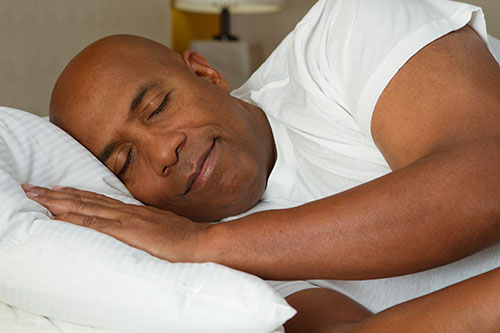
Naperville, IL 60563
Have you ever been told that you snore? Although snoring might seem like an insignificant issue, it could actually be a sign that you are suffering from a serious sleep disorder. Sleep Apnea is a condition that causes sufferers to stop breathing hundreds of times each night as they sleep. In addition to disrupting your rest, people who suffer from sleep apnea are at a higher risk for other serious medical complications, including high blood pressure, diabetes, weight gain, and asthma. Unfortunately, the vast majority of people who suffer from Sleep Apnea are unaware that they have the condition, which means that you could go years depriving your body of the rest and oxygen that it needs to function properly. If you snore, take the time to learn the signs between normal snoring and the type of snoring that is brought on by Sleep Apnea.
When you sleep, the tissues of your throat and mouth relax, which can vibrate slightly as you inhale and exhale throughout the night. Normal snoring doesn't typically have a strong sound intensity, although the loudness does vary from person to person. Normal snoring can usually be alleviated by changing positions or rolling over in bed. For example, if your partner notices that you tend to snore when you lay on your back, they might nudge you to roll over onto your side when you start snoring. However, it should be noted that one out of every two snorers will eventually develop Sleep Apnea.
On the other hand, snoring that is related to Sleep Apnea tends to be more frequent, more loud, and come along with some other scary side effects. If you notice any of these signs in regards to your snoring, you should visit with your doctor as soon as possible to discuss your sleep.

Learn the difference between harmless snores, and snores which indicate sleep apnea.
Because Sleep Apnea is a very serious health condition, doctors take the diagnosis very seriously. Before you are fitted with an oral appliance or sent home with a CPAP machine, your doctor will likely ask you to complete a sleep diary. Each day, you will be asked to write down how you slept, how your partner slept, and if you noticed anything unusual throughout the night. Sometimes, doctors will move straight to an in-home or in-lab sleep study, where your breathing patterns, heart rate, and movements are carefully monitored throughout the night. Once you are diagnosed, your doctor will work with you and your dentist to determine the best treatment plan for your condition. For example, if you have mild to moderate Sleep Apnea, the condition may be treatable with an oral appliance.